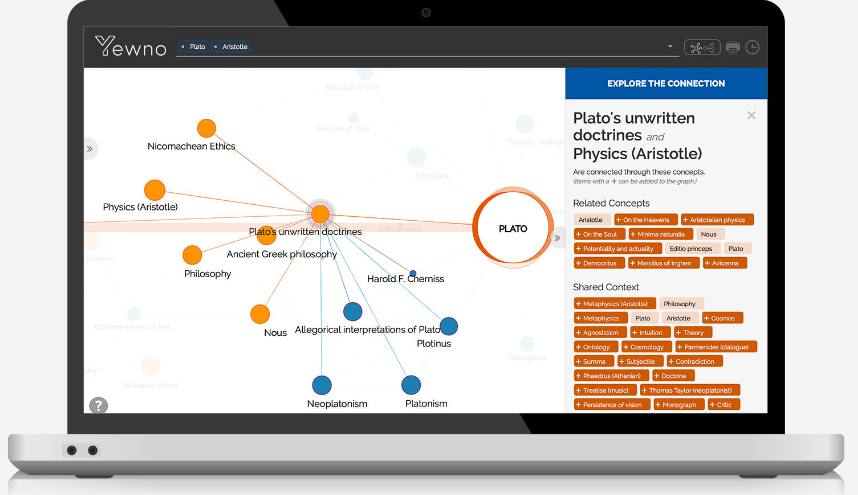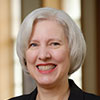This article is more than 5 years old.
Productivity with vendors (book and ILS), committee obligations, and future of cataloging were the three main themes for me in Orlando. Meetings by chance also played a key role in making this an above average conference for me.
I caught up with our Casalini sales rep on how to implement a more Gobi-like version of their fresh interface which will help me and Linda, along with a few others here at ZSR. I met our Eastview sales rep, who had helped us with one of our year-end purchases and I finally broke a logjam around finalizing a license agreement with Springer. For about a year I’ve been talking with colleague and Springer employee Robert Boissy about overcoming discovery discovery problems (with linked data), so he mentioned an interesting new vendor, Yewno. The shortest way I can explain is that it is like a discovery service (e.g. Summon, EDS) but uses artificial intelligence and visualization. They ingest content after they have agreements in place, but I was told at the Yewno booth that it isn’t pre-indexing like the discovery services we know right now. It definitely bears watching as they grow. Maybe the Google of academic content? It reminds me of an internet search engine I used over a decade ago, KartOO, which has been completely closed down, but maybe it was just ahead of its time.

I continued work on two division-level committees: the ALCTS/LITA Metadata Standards Committee and the ALCTS Advocacy and Policy Committee. Now that the conference is over, I’m officially the chair of latter. The group will be working on ALA’s Advocacy Implementation Plan. I saw WSSU colleagues Wanda Brown and Cindy Levine at the Opening Session. I commented to them that I felt like I had been to church after hearing the speaker, Michael Eric Dyson. (I believe he said he was a minister earlier in his life. His inflection surely seemed indicative of it!) Cindy may be joining the Advocacy Committee as a result of that chance meeting. I also attended the Closing Session where Jamie Lee Curtis captivated me with the way she revealed her forthcoming book and perspective on belonging and immigration, at a level that kids get. The title is This Is Me: The Story of Who We Are and Where we Came From — the library edition will not have the pop-up, because Curtis understands how that is a problem for libraries. Both speakers were highly complimentary of libraries and librarians, and far more dynamic and poignant on their topics than I can illustrate. You simply had to be there. I had the good fortune to get in line for the Closing Session with the exiting President of ALCTS, Norm Madeiros, and we conversed about the state of ALCTS membership (declining, like others) and the wonderful value we get from our association. Norm is sincerely worried and he has raised my level of concern, which I think will nicely feed into my work with ALCTS Advocacy. (See also Thomas’ post re: ALA Divisions and membership decline. Norm was at the same “free” lunch with Thomas.) Incidental meetings like this at ALA are just as important as the unexpected exchanges we have with colleagues in crossing the building here at ZSR in our daily work.
At Norm’s President’s Program, Dr. Michael R. Nelson, spoke about “Enabling Innovation in the Era of the Cloud–A Syllabus.” He had a great long list of books as “recommended reading.” In random order from my rough notes, here are just a few sample titles and my memory jogs about them: Drive by Daniel Pink (bonuses are bad unless done in way everyone thinks is fair); Words That Work by Frank Luntz (get complicated ideas into simple bumper stickers and add two good factoids); Beyond the Gig Economy (today’s kids will have about 20 jobs in their career); Future Perfect: The Case For Progress In A Networked Age by Steven Johnson (or watch this); Art of the Long View by Peter Schwartz (or his short essay in Wired in 2009, “Your Future in 5 Easy Steps” and see also the “app.”)
Regarding the future of cataloging: I attended a number of sessions where I heard updates about BIBFRAME and linked data and a little about library migrations from an integrated library system (ILS) to a library service platform (LSP). Come see me if you want more details. Carolyn’s , Jeff’s and Steve’s posts also offer some insights and they can also tell you more than they wrote. I heard details from them when we gathered with members of Special Collections earlier this week to share what we learned. Also Steve recently sent email about a series of webinars from ALCTS that many of us will watch. To my mind, the future of cataloging is a heavy consideration as we investigate next generation systems. I stopped by the booths of multiple vendors of LSPs and will share some observations at an upcoming meeting of the ILS Task Force.

1 Comment on ‘Lauren at ALA Annual 2016 in Orlando’
Thanks for sharing.